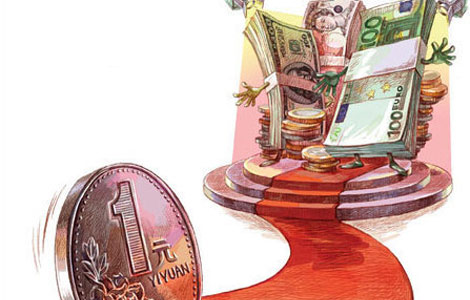Offering bus seats optional: survey
Updated: 2013-07-25 15:22
(Xinhua)
|
||||||||
BEIJING - Most Chinese believe offering their seat while riding public transportation is optional, rather than compulsory, according to survey results published by the China Youth Daily on Wednesday.
About 70 percent of 1,597 surveyed people believe offering one's seat is optional, according to the survey.
In China, respecting the old and caring for the young is a traditional Confucian virtue. Refusing to offer one's seat to the elderly or children was previously considered a social faux pas.
However, conflicts and violence arising from disputes over seating have increased in recent years.
In August 2012, a young man in East China's city of Hangzhou was physically assaulted by another man for not offering his seat to the second man's wife, who was carrying an infant.
In March, an elderly man dragged a girl from her seat to the door of a bus and violently assaulted her before being stopped by other passengers.
The survey mentioned incidents similar to these, with 71 percent of respondents saying the attackers are more at fault than those who are unwilling to give up their seats.
"Choosing whether to offer one's seat or not is a moral issue. But when violence is involved, it becomes a legal issue," said Zhang Xiandong, a professor at the China University of Political Science and Law.
"If you want to have a seat, you can try to communicate with others, but you can not force someone to give up his seat. The law protects the basic rights of everyone, including the freedom to not offer one's seat," said Zhang.
Nearly 58 percent of respondents suggested creating special seating on public transportation for the elderly, pregnant and disabled that is not allowed to be used by others.
Many buses in China already have such designated seating, although most people ignore the designation.
Feng Gang, associate dean of the Sociology department of Zhejiang University, said the seat conflicts reveal the absence of social norms and ethics, saying that many people are raised to look out for themselves first, rather than cooperate with others.
Although the vast majority of respondents said they have offered their seats before, they also said they are not always willing to do so, especially when they are not feeling well. "Once I had a fever and refused to give my seat to a mother who had her child with her, even though the bus conductor told me to do so several times," said Beijing resident Zhang Xiaodong.
Yi Lin, a sociologist at Xiamen University, said passengers who do not feel well enough to give up their seats should explain the situation to those who want their seat, as other passengers may be more willing to give up their own seats.
Yi said Chinese society is still an "acquaintance society" in that it lacks mature social covenants, adding that people should be more aware of the importance of self-education and introspection in order to help society evolve.

 Death toll in Spain train crash rises to 56
Death toll in Spain train crash rises to 56
 Royal baby named George Alexander Louis
Royal baby named George Alexander Louis
 'The Grandmaster' takes center stage
'The Grandmaster' takes center stage
 Fewer Chinese consumers picking Apple's iPhone
Fewer Chinese consumers picking Apple's iPhone
 Yuan: Financial capitals vying for top spot
Yuan: Financial capitals vying for top spot
 Little princes and princesses
Little princes and princesses
 Obama lauds Louisville in White House visit
Obama lauds Louisville in White House visit
 PLA special forces hold military contest
PLA special forces hold military contest
Most Viewed
Editor's Picks

|

|

|

|

|

|
Today's Top News
New US consulate offers quicker service
Bo indicted for bribery, corruption and power abuse
Snowden's hopes of leaving airport dashed
US extends review of Shuanghui, Smithfield merger
'Few hundred' at Manila anti-China rally
Obama, Congress both losing public support
Smithfield deal will get 2nd vetting
Abe seeking to 'contain' Beijing
US Weekly

|

|






